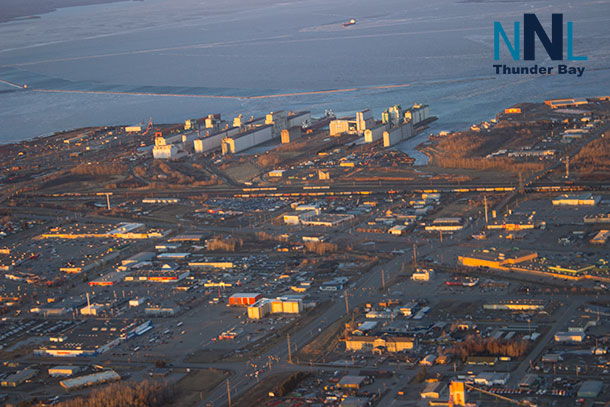
Changing the Status Quo Explored by Northern Policy Institute
THUNDER BAY – VIEWPOINT – For more than forty years, debates on economic development in Northern Ontario have been dominated by several themes. The first of these is that primary industries are key to the region’s prosperity now and in the future. The second is that Northern Ontario provides more funding to Ontario through royalties and taxes paid than it receives in services. The third is that the north is of limited national and global significance. Finally, many observers think that policies and programming in the north can be framed with only passing reference to global trends and circumstances.
Northern Policy Institute has just released a paper that suggests that these fundamental beliefs are either erroneous, obsolete or lack supporting evidence.
Primary industries employ about 6.5% of Northern Ontario’s labor force and generate additional employment that is probably at least as large. This does not translate into a dominant economic position. This lack of dependence is not, however, a crisis. Many of the world’s wealthiest countries, big or small, are resource poor. Japan and Singapore are obvious examples. The message is simply that an economic strategy based largely or exclusively on primary industries will not be sufficient. Indeed, such a strategy comes with considerable downside risk including heightened exposure to commodity price fluctuations.
On the question of fiscal flows, there is little evidence to support the theme that the north continues to contribute more to Ontario than it receives. Early analysis demonstrated that there was a fiscal deficit during the formative years of the province of Ontario but more recent work suggests that the flow is now likely reversed. Some suggest substantially so. It is extremely unfortunate that this debate, unsupported by so little hard evidence on either side, has been such a corrosive influence on the north for so long.
This is especially true given that Northern Ontario is actually vitally important in global terms and within Canada. Northern Ontario is the geographic bridge between eastern and western Canada. It is so large that management of its forests, mines and environment are of global significance. It has the second largest population of all northern regions after Siberia. Its population is eight times as large as the three northern territories taken together. From this perspective, the fact that Northern Ontario’s economic performance has lagged behind the performances of the northern regions of all other provinces and many other northern jurisdictions matters greatly.
Finally, the long history of framing economic policy largely within the context of national and provincial developments is archaic and counterproductive. Unfortunately, it characterizes nearly all recently published government documents relating to the regional economy. The Internet and developments relating to it in the US, China, India and elsewhere reduce the importance of geographical barriers and do much to level the playing field in the global economy. New economic development possibilities have emerged.
Major Changes Needed
The obsolescence of traditional economic thinking in Northern Ontario means that major changes are needed.
The first change is to upgrade statistical data about the region to ensure a more informed population. While it has a population roughly equivalent to Nova Scotia, the data available about Northern Ontario is much more limited than it is for that eastern province. A set of economic accounts similar to those available for provinces is a vital necessity as is a clearer and fuller understanding of fiscal flows into and out of the region.
Local Only Causing Problems
Second, many northern leaders need to get out more. A series of exchanges organized by local organizations with Iceland and the other Nordic countries would be very helpful to improve the management of issues relating to aboriginal people, mining, tourism and the environment. Similar exchanges to Bangalore and Chongqing would be beneficial for obvious reasons.
Working together key
Third, northerners need to build a more cohesive society. The evidence from the rest of the world is that cohesive societies where people work together perform better economically, but divisions among groups are evident everywhere in the north. The divisions are between French and English, between aboriginal and non-aboriginal, between rural and urban, between east and west and many others.
In summary, there are two major paths to the future for Northern Ontario. It can stick with long held beliefs, a litany of internal divisions and a lack of factual data about its economy. If it does so, its performance will almost certainly continue to be inadequate relative to other provinces and many global regions. Alternatively, Northern Ontario can look out more than it looks in, dispel long standing mythology and establish additional mechanisms to collaborate on major problems and issues. If the region follows the second path, the future will be brighter and Northern Ontario could play a role on the national and global stages that matches its size, history and the hopes of its people.
Charles Cirtwell
Charles Cirtwill is President and CEO of Northern Policy Institute. An independent social and economic think tank based here in Northern Ontario. David MacKinnon is an accomplished economic development practitioner and author of the recently published paper “A New Northern Lens”.

